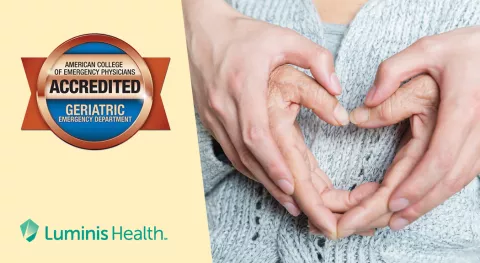We assess fall risk in older adults, create customized fall prevention programs and treat balance problems. We also conduct wheelchair evaluations.
Falls and Balance
Most of us want to continue living in our own homes as we age. But each year, one in four older Americans experiences a fall, which can threaten that degree of independence. For instance, 70% of older adults hospitalized for falls need home health care or nursing home care after hospital discharge.
After a fall, fear of falling again can keep people from staying active or even leaving the house. But you don't have to accept falling as an inescapable part of aging. Our fall prevention and balance treatment specialists can help keep you standing firmly on your own two feet.



